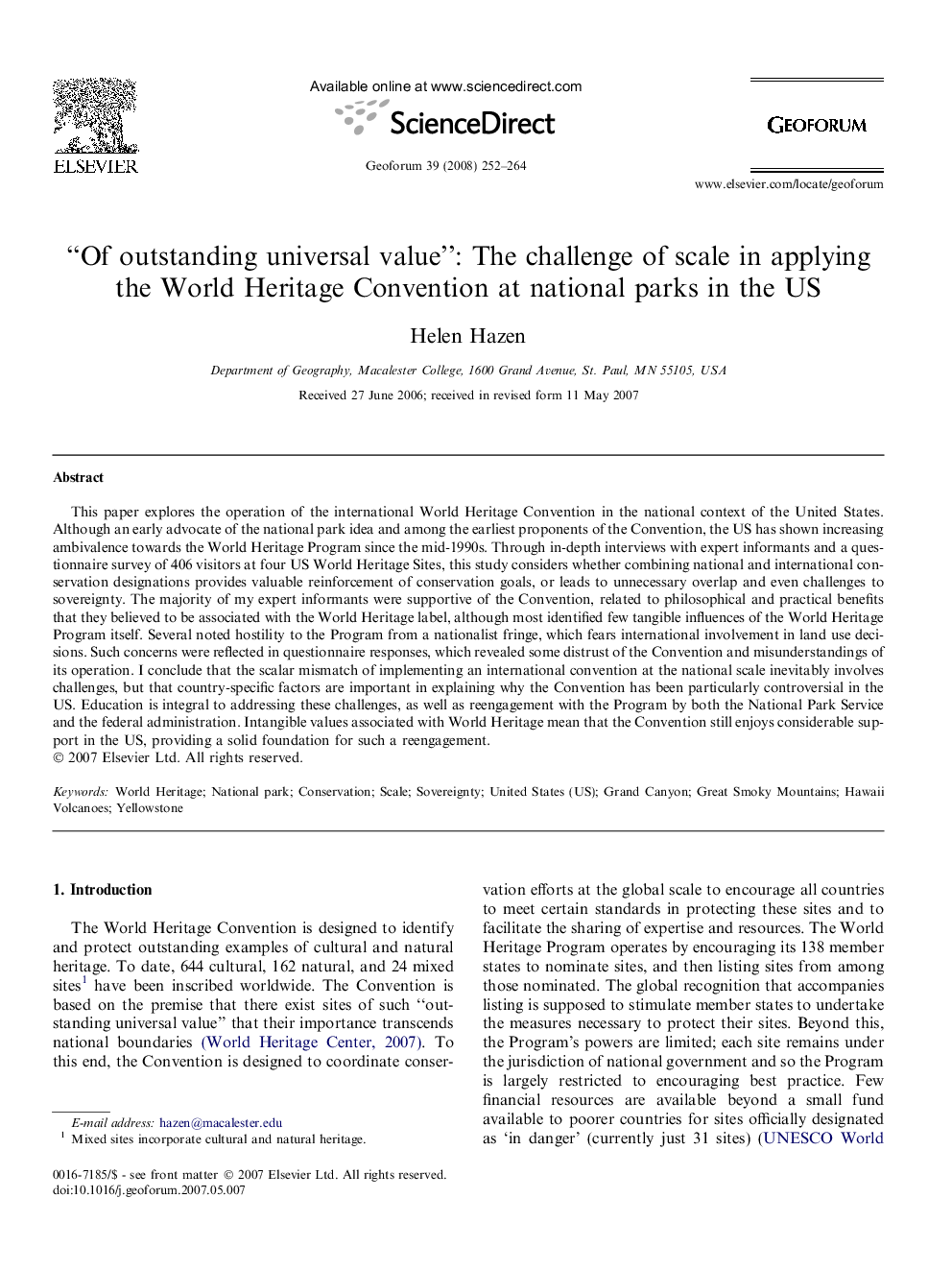| Article ID | Journal | Published Year | Pages | File Type |
|---|---|---|---|---|
| 5074976 | Geoforum | 2008 | 13 Pages |
Abstract
This paper explores the operation of the international World Heritage Convention in the national context of the United States. Although an early advocate of the national park idea and among the earliest proponents of the Convention, the US has shown increasing ambivalence towards the World Heritage Program since the mid-1990s. Through in-depth interviews with expert informants and a questionnaire survey of 406 visitors at four US World Heritage Sites, this study considers whether combining national and international conservation designations provides valuable reinforcement of conservation goals, or leads to unnecessary overlap and even challenges to sovereignty. The majority of my expert informants were supportive of the Convention, related to philosophical and practical benefits that they believed to be associated with the World Heritage label, although most identified few tangible influences of the World Heritage Program itself. Several noted hostility to the Program from a nationalist fringe, which fears international involvement in land use decisions. Such concerns were reflected in questionnaire responses, which revealed some distrust of the Convention and misunderstandings of its operation. I conclude that the scalar mismatch of implementing an international convention at the national scale inevitably involves challenges, but that country-specific factors are important in explaining why the Convention has been particularly controversial in the US. Education is integral to addressing these challenges, as well as reengagement with the Program by both the National Park Service and the federal administration. Intangible values associated with World Heritage mean that the Convention still enjoys considerable support in the US, providing a solid foundation for such a reengagement.
Related Topics
Social Sciences and Humanities
Economics, Econometrics and Finance
Economics and Econometrics
Authors
Helen Hazen,
